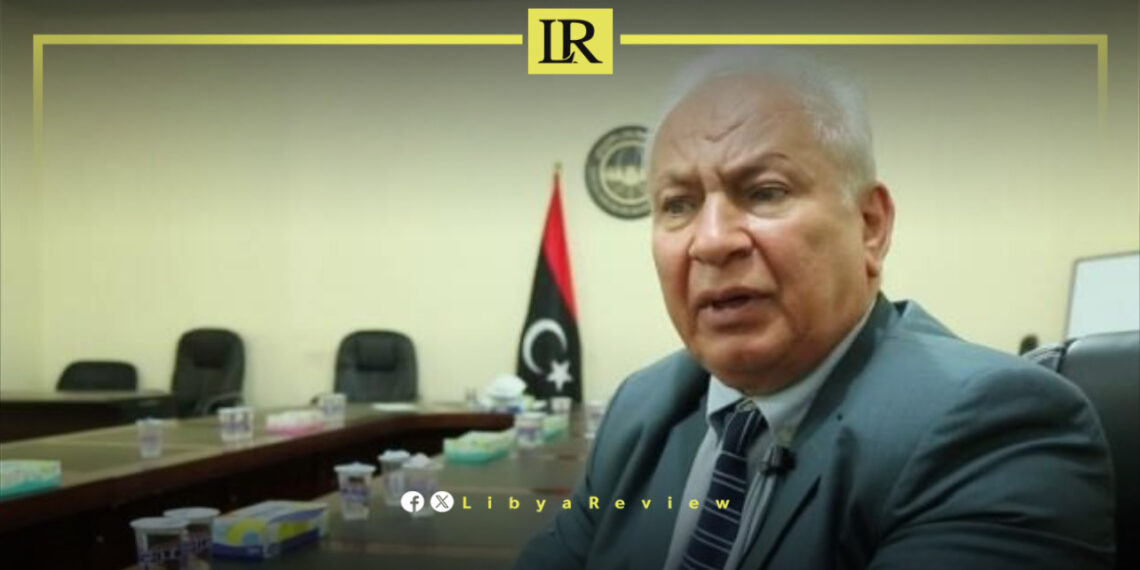Libya remains trapped under the grip of armed militias, which have evolved from combat groups into dominant forces controlling key state institutions. These groups enjoy the backing of a government determined to cling to power at any cost. Despite ongoing international warnings and reports, the global community continues to take a lax approach, leaving Libya prey to an unfair balance of power and vested interests.
Abdul Hamid Dbaiba the interim prime minister whose mandate has expired, bears primary responsibility for empowering these militias. Rather than curbing their influence, he has actively supported them, presenting them as the legitimate guardians of his government. Since assuming office, Dbaiba has pursued a policy of coexisting with and collaborating with militia leaders, granting them unprecedented privileges in exchange for their protection and ensuring his political survival.
A UN report has detailed serious violations committed by these militias, yet conflicting international interests prevent any meaningful action. According to Ali Al-Tikbali, a member of Libya’s House of Representatives, “Dbaiba is not merely turning a blind eye to militia threats—he is an active partner in embedding them within state institutions.” He highlights how the Central Bank of Libya and the National Oil Corporation are practically under the control of these armed groups, which operate a shadow economy and manipulate public resources.
The latest UN report exposes Libya’s dire security situation, documenting serious crimes by militias, including extrajudicial killings, torture, and arbitrary detentions. The report also confirms that these groups finance themselves through fuel smuggling and imposing levies on state institutions, exacerbating the country’s economic crisis.
However, Al-Tikbali argues that the report offers nothing new. “The international community has no real interest in confronting the militias because some foreign powers see them as useful tools for securing their interests—whether in ensuring oil flows or controlling illegal migration routes,” he explains. He also points out that certain countries supply militias with advanced military equipment, despite an official UN arms embargo on Libya.
Libya’s militias have long been central to the calculations of regional and international actors. Al-Tikbali notes that “the militias backed by Dbaiba are used as instruments by foreign powers to maintain their grip on Libya’s security and economy.” He asserts that the current government has lost its independence, operating under the influence of armed factions that have become an inseparable part of its political structure.
A significant factor reinforcing militia power is their ability to derail any efforts to establish a unified national security or military force. They have consistently sabotaged attempts to reunify the Libyan army and maintain their dominance through brute force, benefiting from the political protection afforded by Dbaiba’s administration.
Despite the UN’s clear condemnation of militias in Libya, the global community continues to turn a blind eye. These groups are no longer just warring factions but have entrenched themselves within Libya’s corrupt political and economic system. Al-Tikbali goes further, stating, “Conflicting international interests prevent any real action against these groups, as some countries benefit from the ongoing chaos to strengthen their influence in Libya.”
He questions, “How can we talk about dismantling militias when some international powers are openly cooperating with their leaders? How can warlords be sanctioned when they are simultaneously being welcomed in global capitals as legitimate figures?”
The deep entrenchment of militias in state institutions is most evident in their control over the Central Bank of Libya. These groups exert immense pressure to secure funding for their operations. Through their networks, they have ensured a continuous flow of money, either through massive budget allocations under the guise of ‘stabilization support’ or by directly controlling currency exchange and smuggling operations.
Al-Tikbali emphasizes that “militias no longer need brute force to impose their will—they are now integral to Libya’s corrupt governance system.” He accuses Dbaiba’s government of providing the political and legal cover necessary for these groups to maintain their influence.
With this ongoing chaos, the fundamental question remains: Can Libya break free from militia dominance and restore state sovereignty? Al-Tikbali believes that dismantling these groups requires both national and international willpower. However, he doubts the existence of such commitment, given the conflicting interests among the key players.
As long as Dbaiba remains in power and the international community continues to ignore the crimes of these militias, Libya is likely to remain trapped in turmoil. Armed groups will continue to dictate state decisions, and the Libyan people will remain the biggest victims of this bleak reality.


